54 F. high temperature yesterday in the Twin Cities.
56 F. average high for April 11.
63 F. high temperature on April 11, 2011.
70+ F. temperatures possible Saturday.
.98" rain predicted for the Twin Cities by Sunday morning (NAM model).
Wet snow can't be ruled out Monday, even a light, slushy accumulation over central MN. Hey, I'm just the messenger.
70s, even a few 80s, predicted for the last week of April (GFS model).
13 minutes. Average lead time for tornadoes in the USA, from when a tornado is first observed and warned for, and when it arrives at a given community. Lead time has more than doubled since 1970. Source: SPC.
1,500 average number of tornadoes every year across the USA.
1% percentage of tornadoes that will ever grow into devastating EF-4 or EF-5's.
Smoky Sunset. I snapped this photo around 8 pm yesterday as the sun set off to the west/northwest, a plume of smoke swept up by (southerly!) winds aloft - a fire somewhere near Smithtown Bay or Minnetrista.
Hang On. Saturday appears to be the mildest day in sight, a good chance of upper 60s to low 70s - depends on whether the sun stays out for a few hours. And then: another temperature tumble, possibly cold enough aloft for rain and snow showers by Monday. Insert favorite expletive here.
ECMWF: Wet Snow Monday. It's not definite. Nothing is, come to think of it. After peaking near 70 Saturday temperatures drop nearly 30 degrees. The European model is predicting a high of 34-35 at MSP Monday, with a coating of slush. Have a nice day.
Putting A Dent In The Drought? I hope the latest model trends are on the right track. Anywhere from .5" to 1" of rain may fall in the metro late tonight into Saturday (Friday still looks like the wettest day), with as much as 1.5" possible from Marshall to Willmar. We'll see.
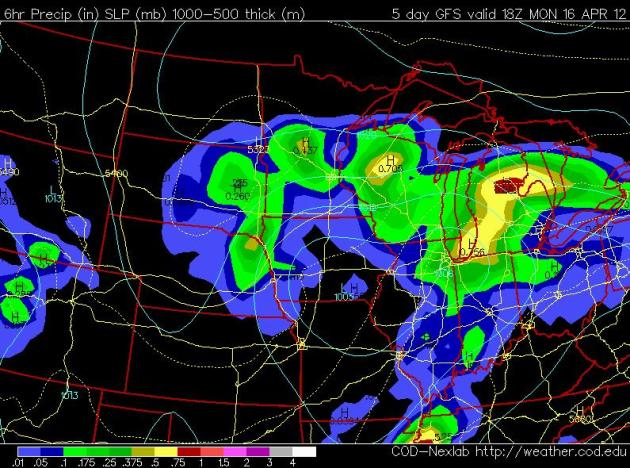 Monday Flakes?
Monday Flakes? I'm not so bold (insane)
as to predict accumulating snow for the metro - yet, but there's a growing chance of flurries and snow showers Monday, probably melting on contact with air and ground temperatures well above freezing. I
could see some slush over central Minnesota, maybe an inch or two? Hey, look at the time. Let's get off this topic...
Summerlike End To April? The GFS is really heating things up for the last week of April, with a run of 70s, even a few 80s from April 23-28. After a touch of snow Monday (?) a lukewarm end to April sounds like a pretty good idea.
"
When we look at where the extremes have occurred in the U.S. over the last year, we see them essentially everywhere: droughts in the West, floods in the Northeast [and] tornadoes in the middle... It really is the case that there is no place on the map that is immune to climate change and disasters." - from a Huffington Post article below.
Chicago Frost/Freeze. Temperatures dipped into the upper 20s in the outlying suburbs of Chicago Wednesday - more details from the
KLOT NWS.
Forecast Calls For More Smoke. From the Melbourne, Florida office of the NWS: “
A weak front moving into the area was producing northwest to north winds. This was bringing some smoke from the large “County Line” fire in northeast Florida to areas around the Ocala National Forest. There may be a slight smell of smoke in the air across northern sections of east central Florida into the afternoon.”
Highlights from
gainesville.com: “The week-old wildfire raging in North Florida has burned more than 25,000 acres so far and officials on Wednesday were expecting it to engulf another 10,000 in the coming days.” “An army of firefighters have managed to corral only 25 percent of what is being called the County Line Fire” “The blaze started April 5 on the boundary between Baker and Columbia counties by a lightning strike”
Large Brush Fire Buring Near MetLife Stadium In Meadowlands. A little close for comfort;
NJ.com has the details: "
A large brush fire is burning near MetLife Stadium, generating large plumes of black smoke visible from the New Jersey Turnpike in Middlesex County, highways in Essex County and parts of Manhattan. Late this afternoon, authorities closed a portion of the New Jersey Turnpike as 20-foot high flames continued to burn through the dry grass in Carlstadt, not far from the football stadium in neighboring East Rutherford. Swampy terrain and tall grass make it too dangerous for crews to fight the 100-acre fire directly, said Kevin Drake, assistant division fire warden for the New Jersey Forest Fire Service."
Photo credit above: "
Flames burn fields of dry grasses surrounding the Izod Center and several industrial complexes in Carlstadt. (Jennifer Brown /The Star-Ledger)."
A Shower Of...Dippin Dots? Check out this photo from the
State College, PA office of the NWS. Looks like graupel to me, not sleet or hail. Very odd.
Wednesday Tornadoes...In California? Unusual? Yes, but hardly unprecedented. There were reports of at least two small, brief tornadoes, one near Stockton, another funnel near Hanford. The reflectivity and velocity signature of the Hanford tornado is below:
The Palm Sunday Tornado Outbreak. Here's an interesting story about the evolution of severe storm forecasting from
mywarn.com: "
On the Palm Sunday morning of April 11, 1965, warm, humid air was flowing northeastward into the Midwest ahead of a fast moving low pressure center that was dropping southeast out of Minnesota toward Iowa. A warm front was moving northward across Illinois and Indiana. Strong warm air advection was occurring across the region in the wake of the warm front with temperatures in the lower 80s in some places. A strong cold front trailed southward from the low. In the upper levels of the atmosphere, a huge, positively tilted trough extended from an upper low center over the upper Midwest back to southern California. A strong jet stream was flowing over the Midwest with a 185 mph jetmax located on the morning sounding at Dodge City, Kansas. The Weather Bureau’s Severe Local Storms Unit (SELS) at Kansas City issued five tornado forecasts that day. Every tornado but two occurred in a forecast area."
Deadliest Tornadoes. PBS Nova ran a terrific hourlong doc on tornadoes and tornado research last night; focusing on last year's deadly tornado outbreak....Joplin and Tuscaloosa; 5 EF-5 tornadoes in all. See if you can DVR this - it has some of the best special effects I've ever seen, definitely worth an hour of your time. More details from
NOVA.
U.S. Insurers Rethink Coverage After Weather Disaster Payouts. When will people realize that climate change is real? When their insurance premiums start to go up - dramatically. You've heard the saying "no aetheists in foxholes?" There are few climate change skeptics working for major insurance companies (or the military, for that matter). Here's a story from Reuters and
MSNBC.com: "
PITTSBURGH (Reuters) - As weather disasters strike with more frequency, homeowners first get hit with the destruction or total loss of property. Many are then hit with the unexpected loss of homeowners insurance policies as insurance companies re-evaluate their financial liabilities. After a tornado ripped through Springfield, Massachusetts, last year, R. Paula Lazzari's home was badly damaged. The retired teacher found broken windows, missing siding and a damaged roof. Her insurer offered to fund repairs for one broken window and some of the siding. It took nine months -- and mediation services from an independent adjuster and the Massachusetts Division of Insurance -- to get her bills paid, according to the parties involved."
Hurricane Season Forecasts Begin. We're evolving from a La Nina cooling ENSO phase into a possible El Nino warming phase (how is it meteorological possible that we just experienced the warmest March on record, nationwide, during a "cooling phase"?). El Nino patterns are usually accompanies by stronger winds over the tropics, winds aloft that often shred developing T-storms before they have a chance to organize into a tropical depression or storm.
WRAL.com has a good story about hurricane season and the "fine art" of predicting how many storms there may be in a given season: "
The first of the seasonal hurricane forecasts have come out in the last week or so, with outlooks from both the group at Colorado State University (CSU) and a group closer to home at NCSU now available. NOAA should be adding their forecast before much longer, though it seems likely to follow the trend of the other two. Overall, the forecasters are noting, among other factors, Atlantic ocean temperatures in the principal tropical cyclone generation areas that seem likely to run a bit cooler than recent years, and also the decay of La Nina in the Pacific, which has been present last season but which is just about over now as the Pacific ocean transitions to a more neutral pattern that is expected to last through the summer and into the fall." Photo: NASA.
FEMA: Flood Insurance Is Best Protection Against Huge Losses. An excerpt from a post at
7thspace.com: "
The most common disaster that the Federal Emergency Management Agency deals with involves flooding. The topography of West Virginia makes it especially vulnerable to floods, as many residents bluntly learned, or relearned, over the last several weeks. Insurance companies seldom offer coverage for flood damage. FEMA does...."The NFIP covers upwards of 5.5 million homeowners, renters and businesses in more than 21,000 communities nationwide,” FEMA flood-insurance specialist Richard Sobota said. “Homes can be insured against flood damage for up to $250,000 and commercial buildings for up to $500,000. Policies can be written to include contents coverage for up to $100,000 for homes and $500,000 for business contents. Renters can insure their personal property for up to $100,000."
Environment Agency Warns Of Flash Flood Risk In Drought. Sounds a bit counterintuitive, but during a drought the ground becomes hard and crusty - when rain does fall it often runs off into streets and storm sewers, instead of soaking into the ground, where it's needed. The
BBC has more: "
Drought conditions affecting much of England could increase the risk of flash flooding in heavy rain, the Environment Agency has warned. Hosepipe bans were introduced in parts of southern and eastern England on 5 April after one of the driest two-year periods on record. But the agency said "dry, compacted soils" absorbed water less easily and future storms could cause flash floods. It is encouraging people to use its new Facebook FloodAlerts application. Head of flood incident management Craig Woolhouse said drought conditions meant that flooding "may be far from people's minds" but that the risk could not be ignored."
Ho Hum April By Hurricane Expert Jim Reif. A post from
WZVN.com in Naples/Ft. Myers Florida: "
Springtime across the United States can be an exciting time for weather watchers. Big swings in temperature are common as leftover winter airmass try to fight the growing warmth of April. And these are the days that Tornado Alley often gets very busy. But April is SW Florida is usually a quieter and gentler time. Long term weather records show that these 30 days usually bring some of the sunniest and driest weather of the entire year. And April 2012 is no different. On today's weather map, the same high pressure that brought our beautiful Easter is still in control....and about to be replaced by another dry, continental airmass that will settle into the Gulf states."
"Ask Paul". Weather-related Q&A, Comments....Threats, etc.
Wedding Day Bliss. Katy Thorpe just got married - congratulations to you and your new husband Katy. She dropped me a note before the Big Day, wondering about the weather, which can be very iffy in March. I spent much of the morning kicking the Doppler and lighting candles - turns out the sun did make a cameo appearance, right on cue - great wedding pics, including this one taken by Alex Johnson Photography. Thanks for sharing this, Katy. Predicting more good things...
Hello, Paul!!
"The day was great for us! We did have rain in the morning but by the time ceremony was done, it was beautiful afternoon with little winds. Here is a photo of us with the sky! :)"
Thank you!
Katy
Broadcaster Ranks Among Top 10 Worst Jobs. "I'm mad as hell and I'm not going to take it anymore!" If you work in broadcasting, or any journalistic field, chances are you've had a Howard Beale moment, from the incomparable movie, "Network". I'm worried that local TV stations aren't adapting to the new media landscape fast enough. Updating a web site, posting a few tweets or FB posts just isn't going to cut it in. My humble opinion (based on the trends I'm seeing in an on-demand world: TV stations need to (quickly) become "Content Centers" that are device agnostic. They shouldn't care whether I'm watching on cable, an iPad or smart phone. And there needs to be more emphasis on making news, sports and weather more personalized and relevant. Most of the news I watch? No relevance to my life - I simply don't care. The smart TV stations, the survivors, will figure out how to create custom newscasts that are different for every viewer. End of sermon. Here's an excerpt of an interesting story from
TVSpy.com: "
Being a broadcaster is the worst. That’s according to a new jobs report from CareerCast, which ranked the best and worst professions of 2012. TV and radio broadcaster ranked #10 on CareerCast’s list of worst jobs, just behind butcher and a few notches better than newspaper reporter. “As the digital world continues to take over and provide on-demand information, the need for print newspapers and daily newscasts is diminishing,” CareerCast explained, pointing out that it’s the first time that two media jobs have landed on the site’s top 10 list of worst jobs. “To be sure, both jobs once seemed glamorous, but on-the-job stress, declining job opportunities and income levels are what landed them on our Worst Jobs list.” The site also ranked photojournalist as one of the most stressful jobs."
Unmanned Nanomaterial "Piranha" Threatens To Redefine Naval Warfare. Wow - I'm glad I'm on the same side as the U.S. Navy. How long before one of these turns up on Lake Minnetonka? Here's a quick summary from
gizmag.com: "
You've heard of UAVs, unmanned remote controlled military aircraft; but what about USVs? Standing for Unmanned Surface Vehicle, a USV is quite simply an unmanned boat, like Zyvex Marine's Piranha concept. We've looked at USVs before, and the Piranha specifically in early 2010; but what was then a prototype under development is now a fully-fledged production craft, having shipped its first unit last November. "Our production facility is closer to rocket science than traditional boat building," says Zyvex Marine VP Byron Nutley of his boat - the only one in the world, it's claimed, that is made out of nanomaterials. But does the Piranha have the technological bite to match the hyperbole, and what does this mean for naval warfare?"
Getting Better. Under a bright blue sky (with less wind) suddenly 50s didn't feel so bad. Was it just me, or was there a strange lack of frost on most lawns, in spite of wake-up temperatures in the mid 20s? Wednesday morning lows ranged from 18 at International Falls and Hibbing to 20 at St. Cloud, 27 in the Twin Cities and 29 at Grand Marais.
Paul's Conservation Minnesota Outlook for the Twin Cities and all of Minnesota:
TODAY: A fine spring day. Fading sun, milder. Winds: S 15. High: near 60
THURSDAY NIGHT: Dry evening - rain possible late. Low: 47
FRIDAY: Rain likely, rumbles of thunder? Probably not severe. High: 61
SATURDAY: Mild and more humid. Some AM sun, PM T-storms, a few strong (severe?) Winds: S 5-10 High: 70
SATURDAY NIGHT: Scattered T-storms, locally heavy rain possible. Low: 48
SUNDAY: Cooler, drier day of the weekend. Peeks of sun. Winds: NE 10+ High: 58
MONDAY: Partly sunny and cool. Low: 40. High: 51
TUESDAY: Storm probably stays south of MN. Low: 38. High: near 50
WEDNESDAY: Frost possible central MN and far outlying suburbs. Clouds increase, nighttime showers. Low: 37. high: 53
Borderline Surreal
I'm seeing things this year I just wasn't prepared to witness. 26F at my house Wednesday morning, but no frost. I suspect it's too dry, dew point too low. Reports of low-flying helicopters over apple orchards in the St. Croix River Valley, to keep the air stirred up and avoid a killing freeze? Who's paying for this? I suspect we'll be paying more for apples in the weeks ahead.
NOAA reports the warmest March since 1895; over 15,000 records (a record number of records); 8.6F warmer than the long-term average. 25 states east of the Rockies saw their warmest March ever. "There were 21 instances of the nighttime temperatures being as warm, or warmer, than the existing record daytime temperature for a given date" said NOAA.
You can't stay this warm, for this long, without a little payback. Our Canadian Relapse is history; temperatures mellow to 60 today; if the sun comes out for a few hours Saturday we could top70. Some badly needed rain (NAM prints out .98") falls late tonight into Sunday morning; a few strong T-storms can't be ruled out, especially late Saturday. Sunday looks drier but cooler. The ECMWF model is hinting at....um....wet snow on Monday. Probably no accumulation in the metro (melting on contact) but a slushy inch or two can't be ruled out over central Minnesota.
No more freezes in sight, but I see a cool bias next week, followed by a possible rerun of 70s, even a few 80s, the last week of April. Keep a light jacket handy. Shorts too.
Climate Stories..
A message to climate trolls/deniers/professional skeptics. Thank you for your comments. I wish I could tell you that I read every one, and agonize over them, but I don't. You're free to write whatever you want. Freedom of speech is a great gift, right? You have a right to your opinion, but you don't have a right to the facts. And it doesn't mean I have to read your rants. I don't read the comments, never have, never will, so you're wasting your time. If someone has a thoughtful comment, a question, or a constructive criticism, I'm happy to post it on the blog. But people who continue to deny the science, for whatever reason, political, ideological - it just don't interest me. Post away. Type, furiously, until your fingers cramp up. People I trust, peer-reviewed scientists, tell me that perpetual deniers are sounding a little more shrill and desperate these days. No wonder. The accumulation of "coincidences" is getting deeper; it's getting warmer and stormier out there. You may not believe a few thousand climate scientists, but it's hard not to believe your eyes.
If someone has a real question they can submit it to Terry Sauer, at The Star Tribune. Terry has a strong stomach and a good sense of humor - he forwards me any question, comment or constructive criticism that is relevant and interesting. I appreciate everyone who checks the blog from time to time. I've said it before, and it's true: weather and climate are flip-sides of the same coin. You can't talk about one without understanding the other. I'm trying to aggregate and curate weather and climate stories that I find interesting, with the hope that some of you will too.
Photo credit above:
metaclimate.org.
Climate Change Boosts Then Quickly Stunts Plants. CO2 is good for you! It will be a boon for agriculture! So go some of the refrains from the skeptics, who say "even if it is warming and there's more carbon in the air, plants love it!" Well, maybe not. Here's a summary of a recent decade-long research project at
The National Science Foundation: "
Global warming may initially make the grass greener, but not for long, according to new research results. The findings, published this week in the journal Nature Climate Change, show that plants may thrive in the early stages of a warming environment but then begin to deteriorate quickly. "We were really surprised by the pattern, where the initial boost in growth just went away," said scientist Zhuoting Wu of Northern Arizona University (NAU), a lead author of the study. "As ecosystems adjusted, the responses changed."
More On Extreme Weather In A Warming Climate. Here's an excerpt of a post from Andy Revkin at
The New York Times: "
Here’s a followup to my piece on how greenhouse-driven warming is loading the dice toward more hot weather extremes. In late March, the journal Nature: Climate Change published a “perspective” article by Dim Coumou and Stefan Rahmstorf of the Potsdam Institute for Climate Impact Research titled “A decade of weather extremes.” The piece, discussed by its authors on the RealClimate blog, was widely cited in news accounts and blogs as new scientific analysis. The article summary is here: The ostensibly large number of recent extreme weather events has triggered intensive discussions, both in- and outside the scientific community, on whether they are related to global warming."
A New Climate Reality: What Happens Now? The story at
Huffington Post: "
In a prior post, A New Climate Reality, I wrote how difficult it has been for specialists to face the more personal aspects of climate change. Some of those who know the science and say, yes, this is really happening, are more easily drawn to the lure of cold data over harsh reality, while those who don't believe take out their fear on those who do in a bizarre spate of bullying that seems to have become the norm in our sadly coarsened society. "The world changes so fast, it's difficult to see it in context. Scientists watch from a mathematical point of view, points on a graph, comparative analyses, blips on radar from sensors slapped on the bows of ships. Dry bits of brain matter fight the brain freeze caused by information overload of drought in the Southwest, typhoon-caused floods in Bangladesh, tornadoes in the Midwest, and where's all that snow coming from? It begins to look horrifyingly familiar: one person's agony is another's data."
Fuel To Burn: Now What? An interesting overview of America's (improving) energy position from
The New York Times: "
THE reversal of fortune in America’s energy supplies in recent years holds the promise of abundant and cheaper fuel, and it could have profound effects on what people drive, domestic manufacturing and America’s foreign policy. Cheaper fuel produced domestically could reduce the cost of shipping and manufacturing, trim heating and cooling bills, improve the auto market and provide tens of thousands of new jobs. It might also pose new environmental challenges, both predictable and unforeseen, by damping enthusiasm for clean forms of energy and derailing efforts to wean the nation from its wasteful energy habits."
Poll Finds Support For Fossil, Renewable Energy. An excerpt from
The Houston Chronicle: "
Politicians on all sides of the nation's energy debate can find things to ponder in a new poll that suggests Americans are inclined to develop natural gas resources and build a disputed oil pipeline from Canada, but also want the government to support renewable energy. According to a University of Texas energy poll released Tuesday, 61 percent of Americans said they'd be more likely to vote for a presidential candidate who backs more natural gas, while only 7 percent said such a candidate would be less likely to get their votes."
Tennessee Enacts Evolution, Climate Change Law. This is troubling, at least the climate change law part. We don't want to recognize a scientific reality, so let's just pass a law so we can (officially) not have to teach it in school. Good grief. Details from
The L.A. Times: "
Tennessee enacted a law Tuesday that critics contend allows public school teachers to challenge climate change and evolution in their classrooms without fear of sanction. Republican Gov. Bill Haslam allowed the controversial measure to become law without his signature and, in a statement, expressed misgivings about it. Nevertheless, he ignored pleas from educators, parents and civil libertarians to veto the bill.
The law does not require the teaching of alternatives to scientific theories of evolution, climate change and "the chemical origins of life." Instead, it aims to prevent school administrators from reining in teachers who expound on alternative hypotheses to those topics."
Former NASA Scientists, Astronauts, Criticize Agency On Climate Change Position And "Policy Of Ignoring Empirical Evidence." Details from
The Houston Chronicle: "
9 former NASA scientists and astronauts sent a letter to NASA Administrator Charles Bolden last week criticizing the agency for it’s role in advocating a high degree of certainty that man-made CO2 is a major cause of climate change while neglecting empirical evidence that calls the theory into question, according to Leighton Steward of Plants Need CO2. 49 former NASA scientists and astronauts sent a letter to NASA Administrator Charles Bolden last week criticizing the agency for it’s role in advocating a high degree of certainty that man-made CO2 is a major cause of climate change while neglecting empirical evidence that calls the theory into question, according to H. Leighton Steward of the non-profit Plants Need CO2, who attended the meetings when the letter was drafted."
Americans On Energy: New UT Study. An interesting article at
scienceblogs.com: "
Another poll shows increasing and strong interest among Americans in developing Green Technology and related technologies, as well as reduced interest in anti-environmental extremism and petrolatum-related efforts. Previously, we discussed the new poll by the Science Debate people, and now we have new information from the UT Energy Poll. The results are mixed, but interesting. In order of decreasing preference expressed by a voter to support a candidate for president based on their position, voters like expanded natural gas development, incentives for renewable tech companies, increased energy research, requiring utilities to offer "renewable." Those are all in the above 50% range."
Whole World Is Watching Scotland, Says NASA's Climate Change Expert. The story from
Scotsman.com: "
LEADING Nasa climate change scientist James Hansen has argued that the worldwide publicity given to the referendum on Scottish independence was the ideal time for First Minister Alex Salmond to be “honest” about his long-term climate change policies. Dr Hansen, regarded as one of the world’s most respected climate change scientists, told The Scotsman that newly-elected US president Barack Obama squandered his chance to highlight global energy issues by targeting domestic policy, and he urged Mr Salmond not to do the same."
Photo credit above: "
Scientist James Hansen was presented with the Edinburgh Medal last night. Picture: Jayne Wright."
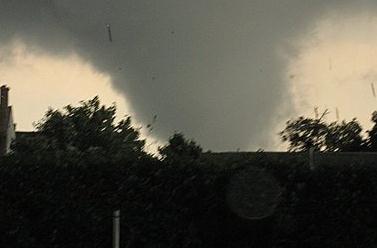
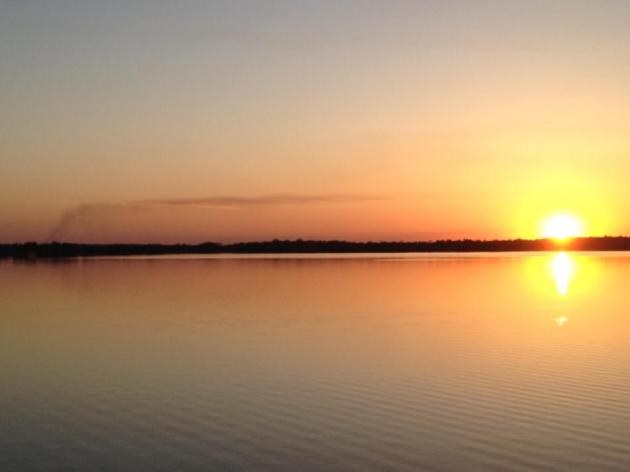
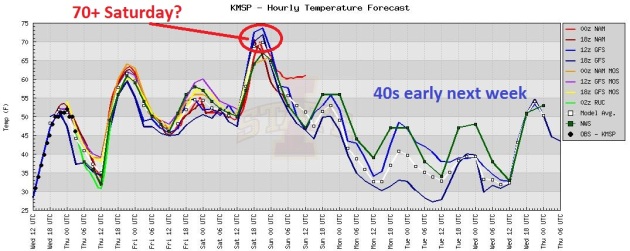

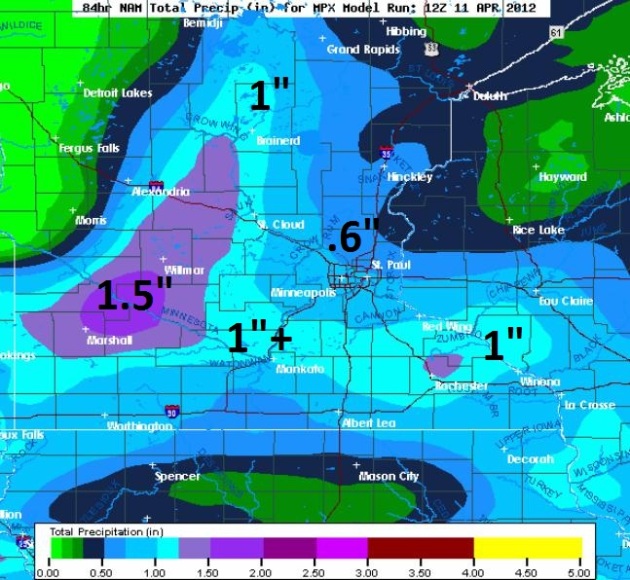

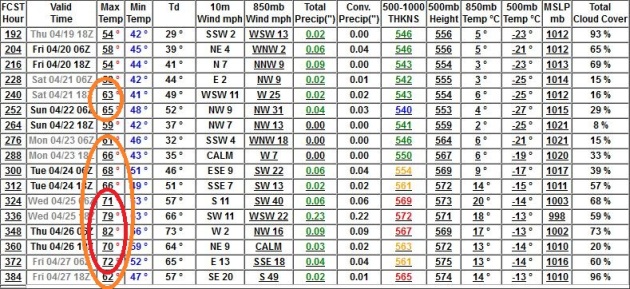

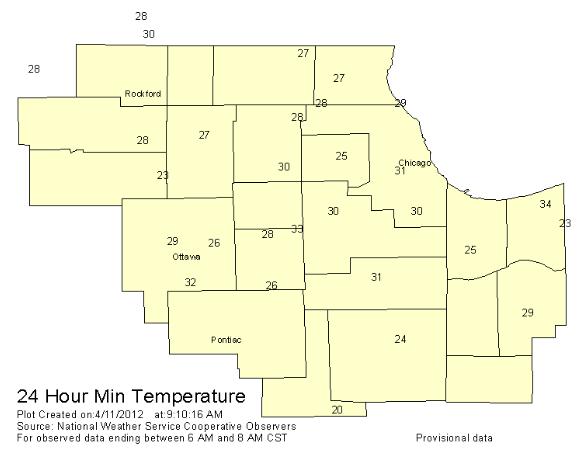
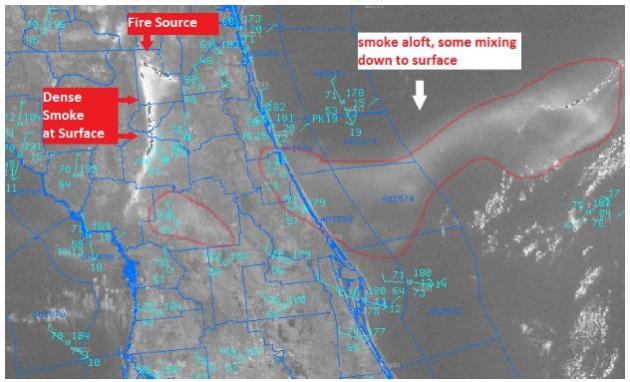
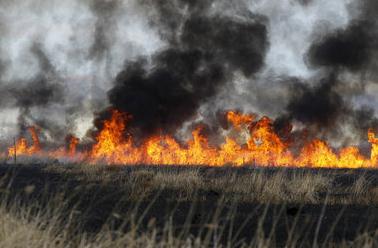
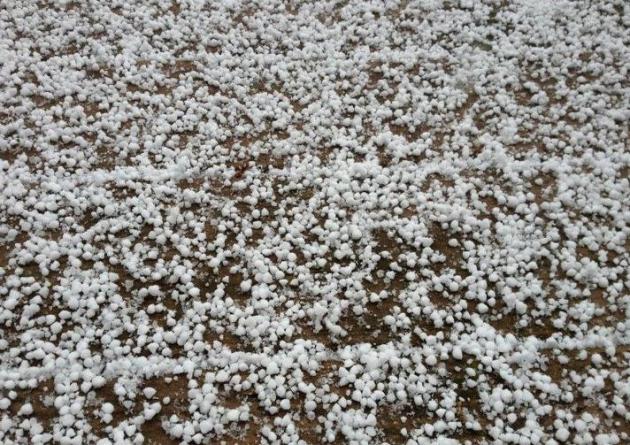

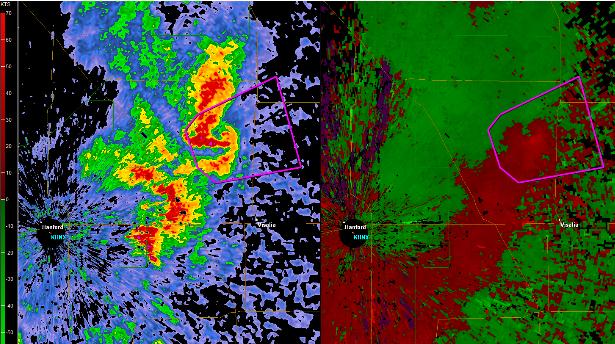
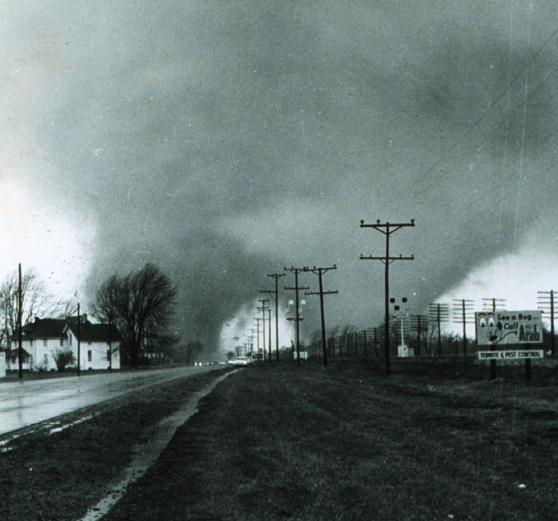
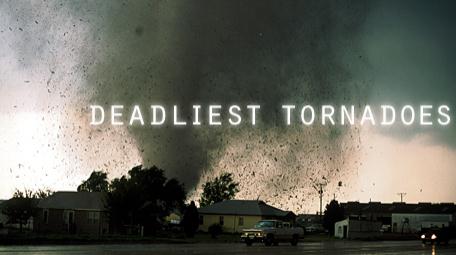
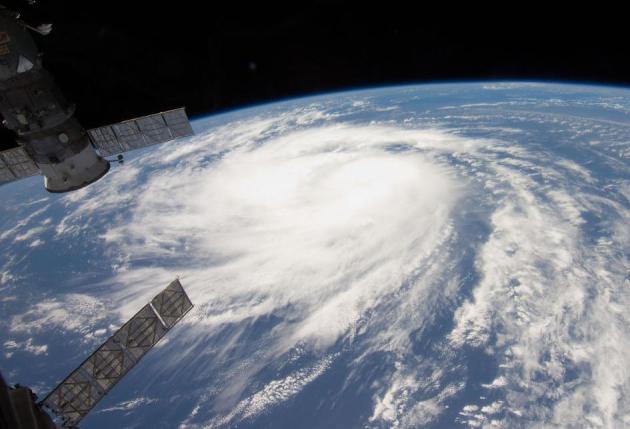
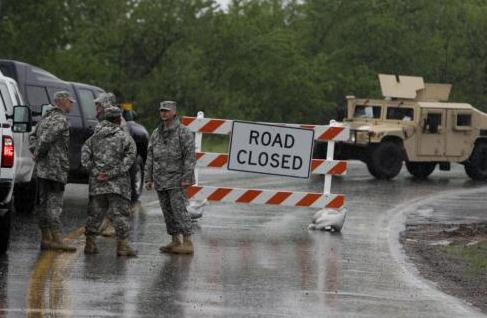



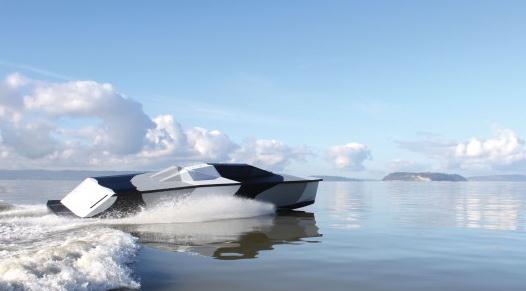


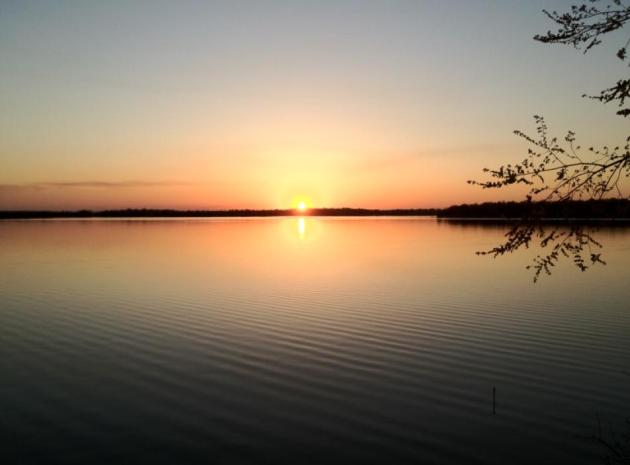


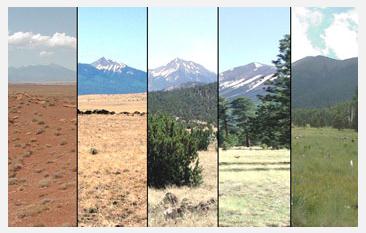
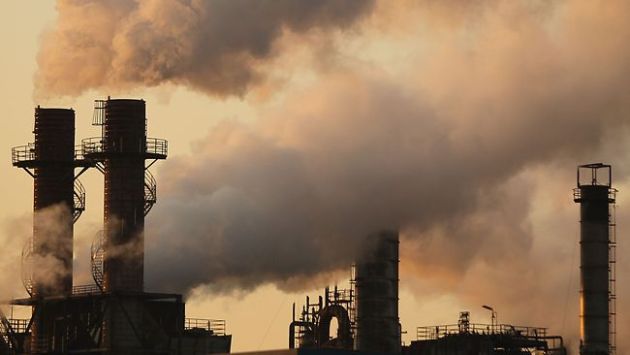
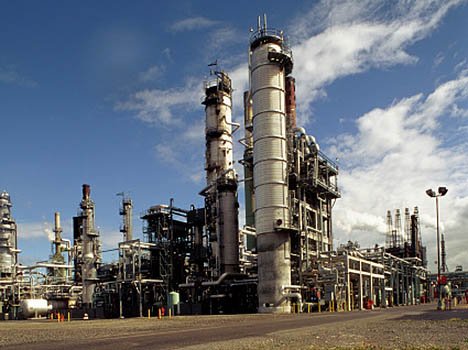


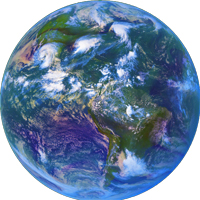


No comments:
Post a Comment